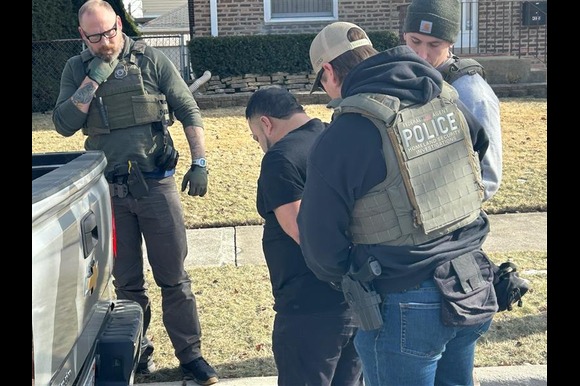In a sharply divided decision, the US Supreme Court has granted the administration of President Donald Trump the authority to resume expedited deportations of migrants to countries other than their nations of origin, effectively overturning a lower court order that had previously required those individuals be given a chance to challenge their removal.
The ruling, issued Monday through the court’s emergency docket, did not include a detailed explanation from the majority. As is customary in such cases, the unsigned order offered no justification. However, all three liberal justices—Sonia Sotomayor, Elena Kagan, and Ketanji Brown Jackson—dissented.
The decision comes amid an intensified immigration crackdown by the Trump administration, which has vowed to deport millions of undocumented individuals residing in the United States. The case at the heart of the dispute involved a group of migrants, including individuals from Myanmar, Vietnam, and Cuba, who had been convicted of violent crimes in the US and were scheduled for deportation in May. Because their home countries refused to accept them, immigration authorities attempted to deport them to South Sudan.
Although the migrants were initially put on a flight to South Sudan, a federal judge intervened, and the plane was rerouted to a US naval base in Djibouti. There, the detainees were held in a repurposed shipping container under harsh conditions alongside their US immigration guards.
District Judge Brian E. Murphy, who was appointed by President Joe Biden, had ruled in April that individuals facing deportation must be given an opportunity to argue that transfer to a third country would place them at serious risk—especially of torture or other forms of grave harm. His ruling stopped short of banning such deportations outright, but required that individuals have access to legal counsel and a meaningful chance to raise safety concerns.
In her blistering 19-page dissent, Justice Sonia Sotomayor warned that the Supreme Court’s decision could lead to grave consequences for vulnerable individuals. “The government has made clear in word and deed that it feels itself unconstrained by law, free to deport anyone anywhere without notice or an opportunity to be heard,” she wrote, adding that the order exposes “thousands to the risk of torture or death.” Justices Kagan and Jackson joined her dissent.
The case highlights growing tensions between the federal judiciary and the Trump administration, which has increasingly bristled at court decisions that have impeded or slowed the president’s immigration policies. The administration’s approach includes reaching deals with countries like Panama and Costa Rica to host deported migrants who cannot be sent back to their native countries due to diplomatic, humanitarian, or security complications.
South Sudan, where the migrants were initially bound, has been mired in conflict and political instability since gaining independence in 2011. Human rights organizations and immigration advocates have raised serious concerns over the risks of sending individuals to such regions without adequate review.
Trina Realmuto, executive director of the National Immigration Litigation Alliance, said the Supreme Court’s action could have devastating consequences. “The ramifications of the Supreme Court’s order will be horrifying,” she warned, noting that the legal fight on behalf of the affected migrants will continue.
A spokesperson for the Department of Homeland Security, Tricia McLaughlin, hailed the ruling as a “MAJOR win for the safety and security of the American people” in a post on social media. The department, however, did not immediately respond to formal requests for comment.
Judge Murphy’s earlier ruling gained attention after it led to the return of a gay Guatemalan man, identified in court documents as OCG, who had been wrongfully deported to Mexico. While in Mexico, he reported being raped and extorted. That case marked the first known instance in which a deportee was brought back into US custody following a wrongful removal since Trump’s re-election.
As the Trump administration doubles down on its immigration agenda during its second term, the Supreme Court’s decision is poised to have wide-reaching implications for asylum seekers, immigrants with criminal records, and the legal frameworks governing international deportations. Critics argue the decision weakens due process protections, while supporters say it strengthens national security and enforces immigration law more effectively.






